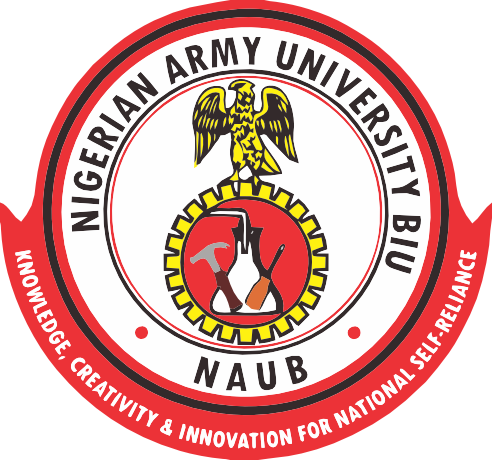 Henry Gyang Mang, PhD is the Ag. Head of Department of History with the Nigerian Army University Biu. He has a B.A in History from the University of Jos, an M.Sc. in African Studies from the University of Oxford, an M.A and PhD (Military History) at the Nigerian Defence Academy Post–Graduate School, Kaduna. He is a member of the Historical Society of Nigeria. He is also a teaching and research fellow with the Leiden University College (The Hague, Netherlands).
Henry Gyang Mang, PhD is the Ag. Head of Department of History with the Nigerian Army University Biu. He has a B.A in History from the University of Jos, an M.Sc. in African Studies from the University of Oxford, an M.A and PhD (Military History) at the Nigerian Defence Academy Post–Graduate School, Kaduna. He is a member of the Historical Society of Nigeria. He is also a teaching and research fellow with the Leiden University College (The Hague, Netherlands).
His areas of research interest in include Identity and conflict in Nigeria, informal economic spaces and conflict in North-central Nigeria, and informal security instruments in conflict spaces. Dr. Mang is married with five children.
Department of History
The Department of Military History (MLH) Nigerian Army University Biu, is the first and only of its kind in Nigeria, being the only Department of History in the country to offer a specified Bachelor of Arts degree in Military History. While other institutions offer Military or Strategic Studies in the post-graduate level, NAUB MLH has built a rich and robust curriculum for undergraduate students, which provides a background and training in War Studies, Histories of various world militaries and Diplomacy. The Department also adds into its curriculum the various genres of History, thereby giving the students both a general and specialized understanding of the study of History.
The Department, although new, has incorporated a special course, studies on Biu and her neighbours, comprising groups in Southern Borno, Southern Yobe, Northern Adamawa and Gombe. This special course affords the Department the opportunity to take an in-depth study on the history, culture and geography of the host area, thereby providing an aspect of knowledge gathering as community service by the University to these host communities.
Philosophy of Programme
The philosophy behind the Department is two-pronged. The first is to adhere to the tenets of historical thought and reasoning through the agency of teaching research and writing, thereby arousing in the students, a sense of the past, an awareness of the development of differing values, systems and societies and the inculcation of critical yet tolerant personal attitudes. To make students understand and acknowledge the reciprocal relationship of History as a discipline with other disciplines and the importance of such influence on their experience of the subject.
Secondly the program specifically tailors the process of History teaching into the Bachelor of Arts in Military History. In teaching Military History, the idea is to widen the student’s knowledge, experience and perspective towards the Study of War. This comprises of histories of wars, the agency of wars and the instruments of war. By implication, while the student is thought the basic tenets of history in general, he/she is specifically tailored towards the qualities of perception and judgement as in relates to Military History.
Objectives of the Degree Programme
Using many historical methods of analysis, complemented with developed research methods of the social sciences, the programme is specifically designed to;
⦁ train and produce well-grounded graduates with advanced knowledge in History and Military Studies;
⦁ provide intensive training for the understanding of world history from afro-centric perspective;
⦁ teach the rudiments of military history, diplomatic history and diplomatic etiquette;
⦁ produce graduates who can become self-employed and employment generators;
⦁ produce graduates who will be able to fit comfortably into a globalised society;
⦁ give students a thorough understanding of Nigerian history and historiography planted firmly in the context of African history and historiography;
⦁ educate students on historical movements of global importance from other continents to enable them acquire better knowledge of the world and thus promote world peace;
⦁ make students comprehend the historical forces and developments which have shaped and are still shaping the lives of the peoples of Nigeria, Africa and the world entirely;
⦁ develop a sense of commitment and capacity to consciously relate to these forces and developments in such a way that Nigerian and African unity, independence and prosperity can be achieved; and
⦁ provide the students with advantages usually associated with historical training, viz: critical and analytical faculty and balanced judgement needed particularly in administrative and managerial responsibilities.
To achieve these objectives, history teachers draw on the expertise of relevant disciplines in the humanities, social sciences and natural sciences to explain the historical forces and developments with which they deal.
